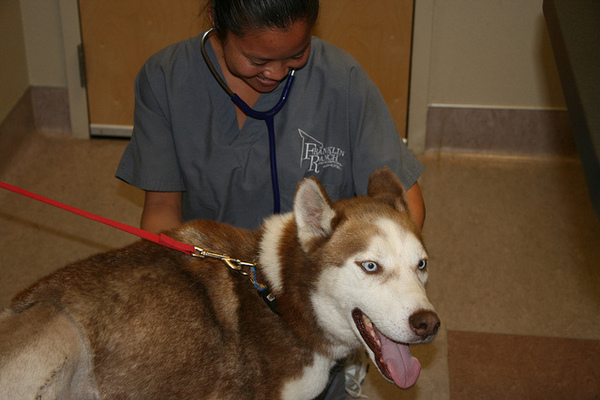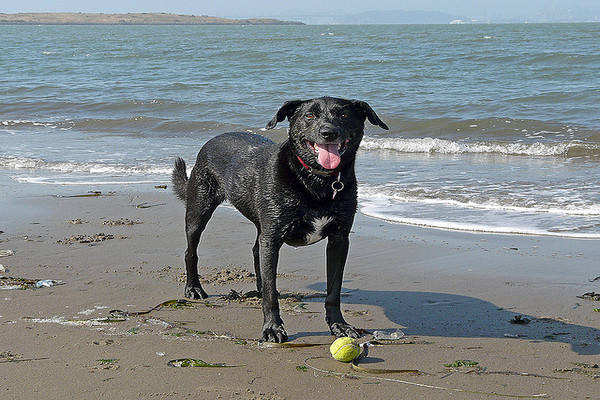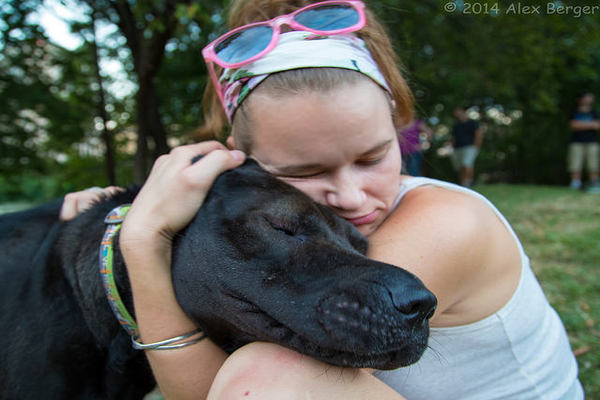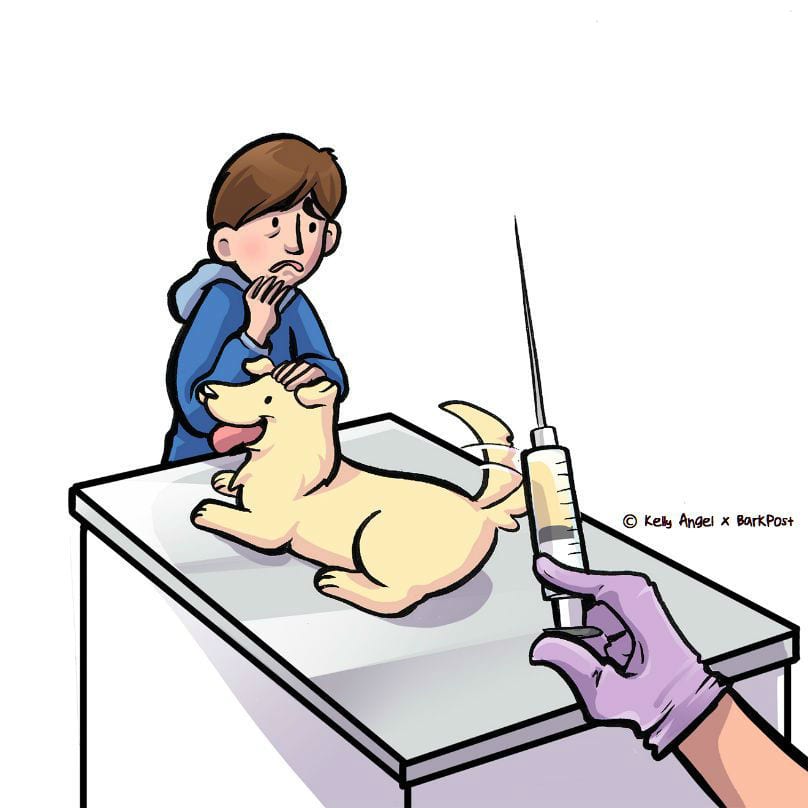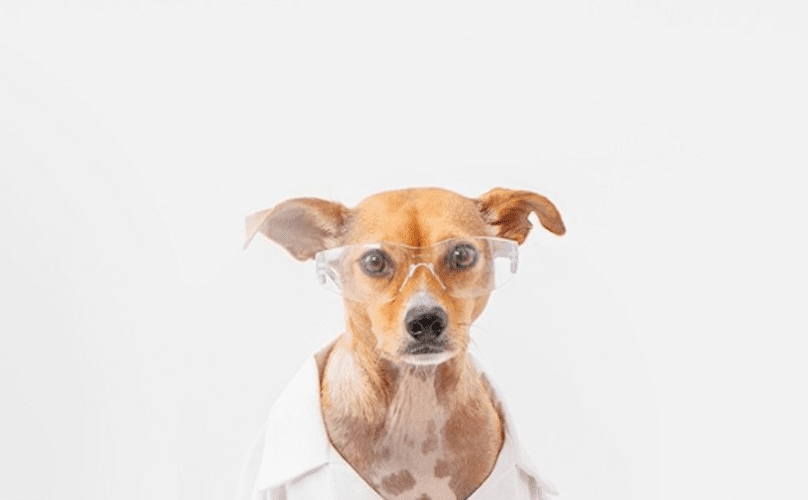We dog lovers all want the same thing: more time with our best friends. Here are some super easy steps you can take to make sure your pups live long, happy, healthy lives.
1. Routine Examinations
Many pet owners only visit the vet when they are seeing a problem. The benefit of regular wellness visits is that your vet can establish what is normal for your dog. If he normally presents with bright eyes, a shiny coat, an outgoing attitude and consistent weight, it will be strikingly noticeable if he returns six months later with dull, flaky skin, weight loss and a timid demeanor. Your dog doesn’t always show obvious signs of illness during the early stages of disease, so routine physical exams are imperative for early detection.
2. Diet
We are what we eat, and the same is true for our pups. With so many choices out there ranging from grain free to hypoallergenic to raw organic, it can be mind boggling to make the best dietary decision. The truth is, there is no single correct diet for all dogs. Starting out with a healthy pooch, choose a diet that is well balanced, free of fillers and dyes and produced from high quality ingredients. Your vet staff can provide strong recommendations. Starting your dog on a specialty diet is not necessary unless he develops food sensitivities or a medical condition. Create a feeding schedule and measure the quantity you feed carefully- don’t forget, treats add calories! A healthy feeding routine can help prevent calamities like diabetes, allergies, joint issues, dental disease, liver disease and much more.
3. Exercise
A healthy diet and plenty of exercise go paw in paw. Lots of cardio therapy is great for your dog’s body and mind. Healthy joints, strong muscles, normal heart function and perfect body condition score all depend on your dog staying active. Dogs on a regular exercise schedule are far less likely to suffer with anxiety related issues like nuisance barking, destructive behavior and separation anxiety. All these amazing health benefits are enough reason to snap on the leash and hit the park, but the icing on the cake is that dogs love to stay active!
4. Grooming
Keeping your dog’s coat and nails healthy ensures more than just a good looking, sweet smelling dog. Pups who are treated to regular grooming are less likely to suffer from itchy skin infections, ear infections, yeast infections and broken toenails. Routine grooming can help detect potential medical concerns like Thyroid disease, anal gland impactions, conditions of the eye and certain tumors. Pampering your pooch will help him look, and more importantly, feel like a million bucks!
5. Dental Health
Stinky plaque and tartar affect more than just your snuggle time with your pup, they can actually contribute to life threatening conditions like heart, liver and kidney disease. Bits of plaque and infection are swallowed and can lead to big trouble over time. It’s best to establish a healthy dental routine early. Daily brushing is ideal, but if your pooch won’t tolerate it, try treats and bones that help scrape tartar as your pet chews. After a certain age, yearly professional dental cleanings at your vet’s office can reveal problem teeth or gum disease, and keep your pet pain and halitosis free.
6. Outdoor Safety
Depending on where you live your dog may encounter a variety of hazards when out and about. From snakes to cars, your dog is simply safer at the end of a leash when enjoying the great outdoors. Dogs who are allowed to roam loose are at greater risk for injury, dognapping and contagious illnesses like Parvo, Rabies and parasite borne diseases. Not to say your pooch has to live in a bubble. By all means, enjoy all Mother Nature has to offer. Just make sure that you do it safely together.
7. Labwork
The routine labwork your vet offers at your annual wellness visit may seem unnecessary when your pooch is the picture of health. Blood, urine and stool tests can reveal a lot about what is going on inside your dog and expose potential problems before you ever notice a symptom. Urinalysis can catch bladder stones and UTI’s. Many people believe that they will see intestinal parasites clearly in their dog’s stools if they are infected. In reality, only 2 or 3 common parasites can be seen in the stool with the naked eye. Fecal analysis can uncover parasite infections that could cause diarrhea, anemia, and even be transmitted to your family members. Routine blood testing can expose heartworm disease, signs of an infection, or issues with your dog’s vital organs. Even if all labwork is 100% perfect, your vet will have a baseline of what is normal for your dog, and you will have the peace of mind of knowing he is just as healthy as he looks!
8. Parasite Prevention
Protecting your dog from topical, intestinal and blood borne parasites is imperative to a healthy life. Fleas can lead to allergic reactions, skin infections and tapeworms. Ticks can transmit painful and potentially fatal diseases like Lyme, Rocky Mountain Spotted Fever and Ehrlichiosis. Heartworm Disease is all too common in the US, and causes damage to the pulmonary artery and eventually death if left untreated. Lots of easy preventative options are available to keep your pet parasite free, and prevention is always cheaper than treatment!
9. Spaying/Neutering
If you are lucky enough to have a furry rescue in your life, chances are he or she came to you neutered or spayed. These safe, inexpensive and routine procedures do more than just control the pet population, they also have health benefits. Altered dogs are less likely to run away and become injured, suffer from life threatening uterine infections or develop certain behavioral issues. Most notably, pets who undergo spay or neuter surgery early in life have lower instances of mammary cancer and prostate cancer.
10. Proactivity
The most important thing you can do to keep your dog healthy is to be his advocate. He cannot tell you when he’s feeling ill, so it’s up to you to pick up on the signs. If you notice something that has you concerned- lumps or bumps, a cough, decreased activity, even just a funny look in his eyes, call your vet! There is no such thing as a silly concern when it comes to your best friend. The subtle changes you notice could just save his life.

